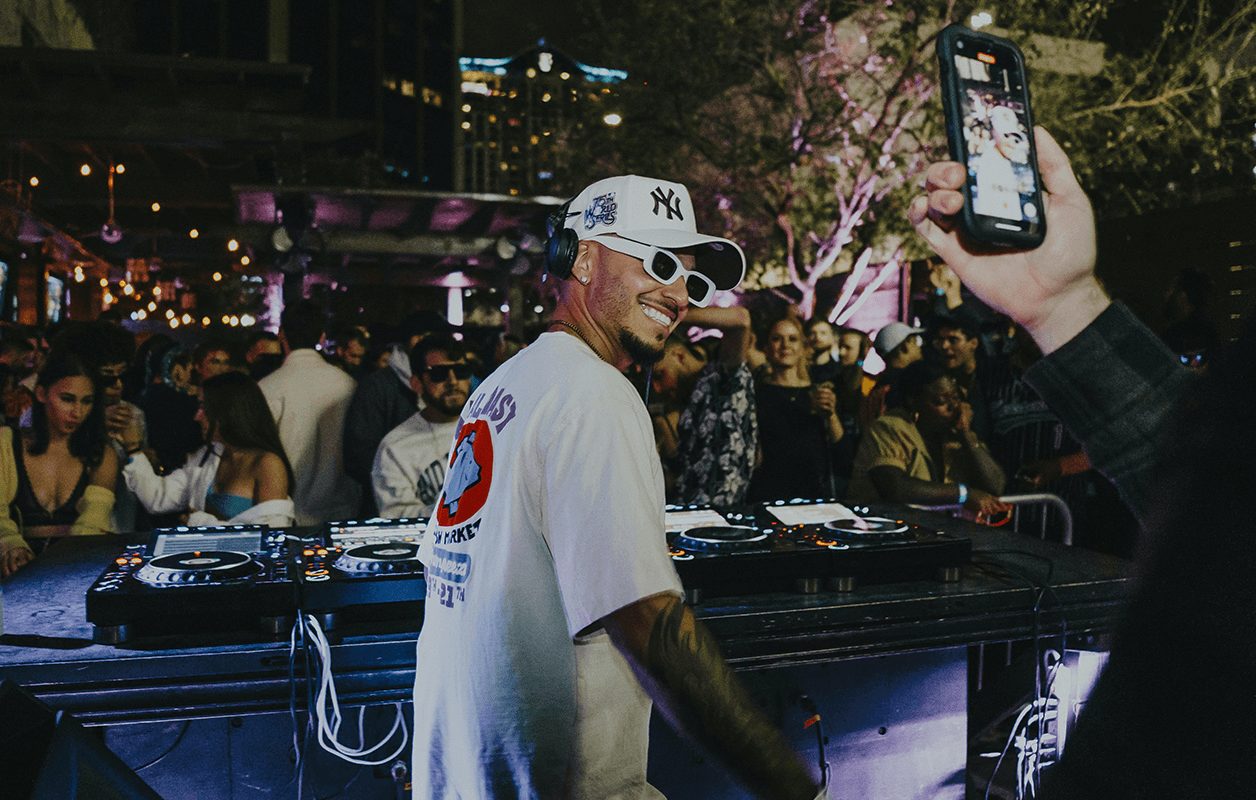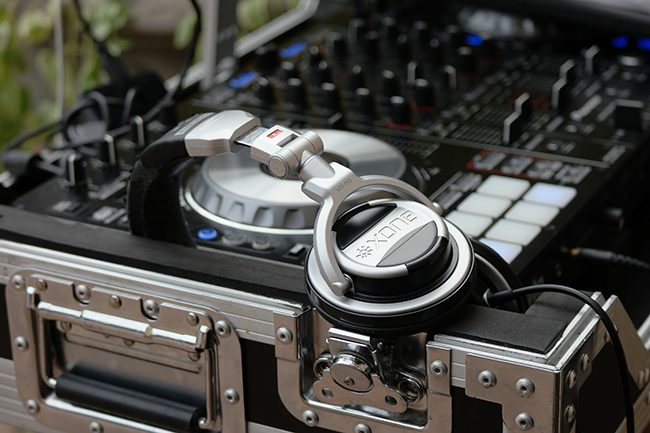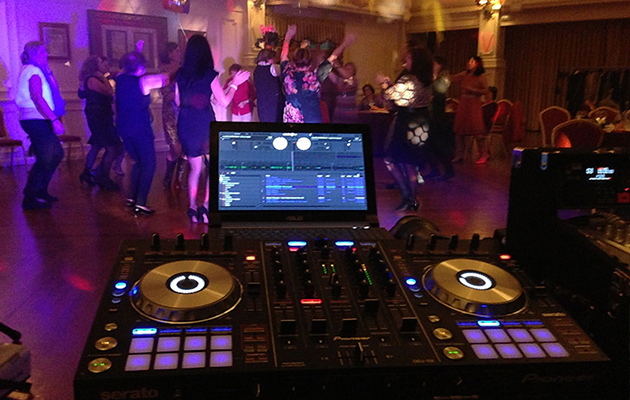
When you first start out as a DJ, you learn about beat-matching, song selection, and song structure. You build your website, social media profiles, and demo mixes. You also work on things like interpersonal skills and building an inventory of gear for your gigs. Maybe you even train at a DJ academy or take online classes. You understand how to throw a great party and spin all the hits so guests dance like crazy. It’s exactly what you expected, right?
However, there are many unique situations that can occur that no one probably told you about when you first got into DJing. Here are some crazy real-life DJ scenarios that might come up and what you can do about them.

You arrive at a venue and there is no electrical outlet anywhere in sight, or all the electricity is being used by another vendor.
Event planners have a lot of different responsibilities, so occasionally may overlook some of the logistics. To prepare for a case like this, it’s worthwhile to bring a 100 ft extension cord to link to an outlet in another location when necessary. Sometimes, a local business might even loan you their power for the event. If you bring a power strip, you can also split the power with another vendor, as long as the total voltage is still below the maximum.
Often, you also might find that outlets won’t generate power because they are on timers. The outlets may be turned off for another reason, so check with an electrician, the engineering department, or venue contact to fix this.
You went to the bathroom before you started your set but have to go really badly in the middle of it.
Perhaps you drank a lot of water before your set, or maybe that cocktail you had during your set is acting as a diuretic. If you need to use the restroom during your set, select a long or extended mix of a song so you have more time. Alternatively, play a pre-recorded mix or set up a few songs on auto-play. Ask the bouncer or staff to watch your stuff if you are in a public space.
You beatmatch two songs perfectly in your headphones. Then you take off your headphones and fade the first song only to hear an eerie silence rather than the second song you so perfectly beatmatched.
There are a couple of explanations for this. One is that you accidentally left your low-pass filter, echo out, or another effect on full blast from the previous song. So, the new song might be muted. Double-check your effects on both your console and your laptop to make sure they are off before you transition to the next song. Also, you might have your console routed to the wrong deck.
A client sends you ten pages of song requests for a 90-minute set.
Ask the client which songs are absolute must-plays and then pick and choose a few from each genre or feel out the event to see which songs fit the vibe best. If you have the time, it’s good to source copies of all the songs so that you can be creative on the spot, organize songs by BPM and key, and choose songs that blend well together.
The wedding is running two hours late and half the guests haven’t even arrived.
You committed to DJing on a certain schedule, so you have no obligation to extend your set even if the wedding party is late. Sometimes, venues have strict cutoff times for music. If a wedding starts very late, check with the wedding planner to see which parts of the reception they definitely want to keep and what the new schedule looks like.
The music just suddenly stops.
There are many causes for this. Perhaps your DJ software crashed and rebooting it will solve the problem. Also, make sure your laptop is well-charged and no plugs are loose and become disconnected.
You start getting strange feedback from your wireless mic, or it completely loses signal.
To avoid feedback, it pays to invest in a higher-end high-frequency microphone with a range that doesn’t compete with local radio frequencies. Also, it helps to filter out low frequencies from the microphone.
It may also be useful to connect the microphone directly to the speaker or route it through a mixer rather than plugging it into your DJ controller. Check the positioning of the speakers in relation to the microphone. Make sure whoever speaks is within range of the microphone receiver and tell them to stay there instead of wandering off while they’re speaking.
And don’t forget to do a sound check with the microphone before the gig starts so you know the best place to use it and adjust your parameters in case there are any issues.
A guest at a club requests ten songs that are a completely different vibe than your DJ set.
How you respond to this depends on how strict the venue manager is about song selection and your own judgment. If there is some flexibility in your song selection, pick one song of the ten that best fits the vibe. You can also ask the guest to choose their favorite song. Look for a remix of the song that better fits the genre of your set or create a mashup. Play the song for one minute and then transition to another song. Alternatively, you can tell the guest that their request doesn’t fit the vibe of the set or say that you will see if you can work the songs into your set a little later.
The spot where you need to set up your gear is occupied.
Perhaps a band or quartet is playing in the spot where you need to set up your DJ equipment. Maybe there are guests at the bar in your DJ spot. Perhaps the planner put the photo booth right next to the DJ spot. In these situations, the best thing to do is tell the planner where you need to set up, and they will adjust or communicate with whoever is in the space. You can also politely ask the person in the space when they will be finished and if you can set up while they are packing up.
You are trying to mix in your headphones but someone is sitting next to you and won’t stop asking you questions.
Stay focused on your laptop and controller, limit eye contact with the guest, and respond to their questions with polite, short answers. If they don’t read your cues, tell them nicely that you need to focus on DJing and that you’d be happy to speak with them another time. If they still won’t stop pestering you, tell the bouncer.
Someone else (another DJ, performer, etc.) is competing for your sonic space.
Sometimes event planners don’t account for the fact that there will be multiple performers making sounds in a small space. For example, if you are doing a DJ set representing Pepsi at a corporate event, and the Coca-Cola booth is right across from you blasting the Coca-Cola jingle, you may have a problem. Perhaps a magician is doing tricks near your DJ equipment and people need to hear him or her. In cases like this, it’s best to speak to the event planner and they can adjust. Alternatively, you can speak to the other performers and perhaps one of you will move to another location or lower the volume.
You need to place one or both speakers very far from your DJ console.
This might happen if the party is in a large space where sound doesn’t reach all spots or if part of the party is in a different room or on a balcony. Bringing extra-long XLR cables or daisy chaining your speakers can help. Also, it’s important to communicate with the event planner before the gig about where the speakers need to be positioned so you can be prepared.

Having a successful DJ performance involves many moving parts, some of them completely unrelated to DJing itself. It helps to prepare by leaving ample time for setting up, bringing extra cables, and communicating with clients and venue managers well in advance.
It’s important to stay flexible, resourceful, and creative when solving problems. Staying calm under pressure will put you in a better position to solve problems and ease your relationship with venue owners, event planners, and clients who may be panicking about any mishaps. Also, as you gain experience, you will learn what problems arise during your sets and how to solve them quickly.

